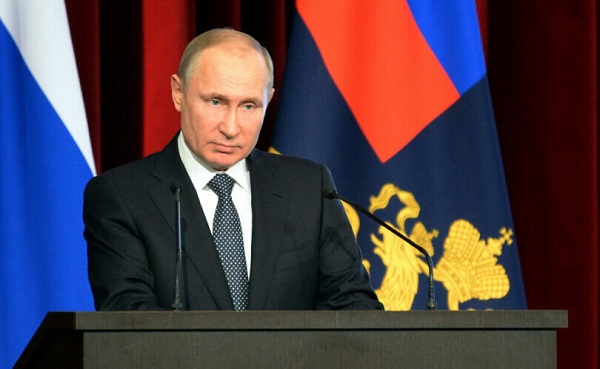Uncategorized
Canadian man euthanized after COVID shot injuries

From LifeSiteNews
An Ontario man in his late 40s has been euthanized after doctors diagnosed him with ‘post COVID-19 vaccination syndrome’ following three COVID jabs, which caused him to suffer ‘severe functional decline.’
An Ontario man has been granted euthanasia for “post COVID-19 vaccination syndrome.”
According to an October report by the National Post, an anonymous Ontario man in his late 40s has been euthanized after doctors determined his COVID shot injuries qualified him for assisted suicide or “Medical Assistance in Dying” (MAiD) under Canada’s euthanasia regime.
“Amongst his multiple specialists, no unifying diagnosis was confirmed,” the reports issued by a 16-member MAiD death review committee found.
Nevertheless, the doctors “opined that the most reasonable diagnosis for Mr. A’s clinical presentation (severe functional decline) was a post-vaccine syndrome, in keeping with chronic fatigue syndrome.”
The man experienced “suffering and functional decline” following three doses of the experimental COVID shots.
He also suffered from a slew of mental illnesses, including depression, post-traumatic stress disorder, anxiety and personality disorders. He was admitted to the hospital twice “while navigating his physical symptoms” with thoughts of suicide.
He was eventually diagnosed “post COVID-19 vaccination syndrome,” which is not currently include in Canada’s current vaccine reporting system. Notably, Canada’s program to compensate those injured by the so-called “safe and effective” COVID shots has now spent $14 million, but the vast majority of claims remain unpaid.
His death is further complicated by the fact that multiple specialists failed to agree on his diagnosis, with many questioning if his condition met the criteria for an “irremediable” condition, which is required to seek euthanasia in Canada. Many also questioned if his mental health disqualified him from undergoing assisted suicide.
The man’s death is considered “Track 2,” part of a group who are not “terminally ill” and whose natural deaths are not reasonably foreseeable.
Dr. Sonu Gaind, a psychiatrist and professor of medicine at the University of Toronto, revealed that he is troubled “by almost everything in this report.”
“I think we have gone so far over the line with Track 2 that people cannot even see the line that we’ve crossed,” said Gaind.
“It’s pretty clear that some providers are going up to that line, and maybe beyond it,” Gaind said.
As LifeSiteNews previously reported, internal information has revealed that Canadian doctors are questioning the morality of euthanizing vulnerable and impoverished patients who are choosing death because of poverty and loneliness.
During his time in office, Prime Minister Justin Trudeau and his government have worked to expand assisted suicide 13-fold since it was legalized, making Canada’s euthanasia program the fastest growing in the world.
Currently, wait times to receive actual health care in Canada have increased to an average of 27.7 weeks, leading some Canadians to despair and opt for euthanasia instead of waiting for genuine assistance. At the same time, sick and elderly Canadians who have refused to end their lives via “MAiD” have reported being called “selfish” by their providers.
The most recent reports show that euthanasia is the sixth highest cause of death in Canada. However, it was not listed as such in Statistics Canada’s top 10 leading causes of death from 2019 to 2022.
When asked why it was left off the list, the agency said that it records the illnesses that led Canadians to choose to end their lives via euthanasia, not the actual cause of death, as the primary cause of death.
According to Health Canada, in 2022, 13,241 Canadians died by MAiD lethal injections. This accounts for 4.1 percent of all deaths in the country for that year, a 31.2 percent increase from 2021.
Uncategorized
Cost of bureaucracy balloons 80 per cent in 10 years: Public Accounts

The cost of the bureaucracy increased by $6 billion last year, according to newly released numbers in Public Accounts disclosures. The Canadian Taxpayers Federation is calling on Prime Minister Mark Carney to immediately shrink the bureaucracy.
“The Public Accounts show the cost of the federal bureaucracy is out of control,” said Franco Terrazzano, CTF Federal Director. “Tinkering around the edges won’t cut it, Carney needs to take urgent action to shrink the bloated federal bureaucracy.”
The federal bureaucracy cost taxpayers $71.4 billion in 2024-25, according to the Public Accounts. The cost of the federal bureaucracy increased by $6 billion, or more than nine per cent, over the last year.
The federal bureaucracy cost taxpayers $39.6 billion in 2015-16, according to the Public Accounts. That means the cost of the federal bureaucracy increased 80 per cent over the last 10 years. The government added 99,000 extra bureaucrats between 2015-16 and 2024-25.
Half of Canadians say federal services have gotten worse since 2016, despite the massive increase in the federal bureaucracy, according to a Leger poll.
Not only has the size of the bureaucracy increased, the cost of consultants, contractors and outsourcing has increased as well. The government spent $23.1 billion on “professional and special services” last year, according to the Public Accounts. That’s an 11 per cent increase over the previous year. The government’s spending on professional and special services more than doubled since 2015-16.
“Taxpayers should not be paying way more for in-house government bureaucrats and way more for outside help,” Terrazzano said. “Mere promises to find minor savings in the federal bureaucracy won’t fix Canada’s finances.
“Taxpayers need Carney to take urgent action and significantly cut the number of bureaucrats now.”
Table: Cost of bureaucracy and professional and special services, Public Accounts
| Year | Bureaucracy | Professional and special services |
|
$71,369,677,000 |
$23,145,218,000 |
|
|
$65,326,643,000 |
$20,771,477,000 |
|
|
$56,467,851,000 |
$18,591,373,000 |
|
|
$60,676,243,000 |
$17,511,078,000 |
|
|
$52,984,272,000 |
$14,720,455,000 |
|
|
$46,349,166,000 |
$13,334,341,000 |
|
|
$46,131,628,000 |
$12,940,395,000 |
|
|
$45,262,821,000 |
$12,950,619,000 |
|
|
$38,909,594,000 |
$11,910,257,000 |
|
|
$39,616,656,000 |
$11,082,974,000 |
Uncategorized
Trump Admin Establishing Council To Make Buildings Beautiful Again


From the Daily Caller News Foundation
By Jason Hopkins
The Trump administration is creating a first-of-its-kind task force aimed at ushering in a new “Golden Age” of beautiful infrastructure across the U.S.
The Department of Transportation (DOT) will announce the establishment of the Beautifying Transportation Infrastructure Council (BTIC) on Thursday, the Daily Caller News Foundation exclusively learned. The BTIC seeks to advise Transportation Secretary Sean Duffy on design and policy ideas for key infrastructure projects, including highways, bridges and transit hubs.
“What happened to our country’s proud tradition of building great, big, beautiful things?” Duffy said in a statement shared with the DCNF. “It’s time the design for America’s latest infrastructure projects reflects our nation’s strength, pride, and promise.”
“We’re engaging the best and brightest minds in architectural design and engineering to make beautiful structures that move you and bring about a new Golden Age of Transportation,” Duffy continued.
Mini scoop – here is the DOT’s rollout of its Beautifying Transportation Infrastructure Council, which will be tasked with making our buildings beautiful again. pic.twitter.com/
9iV2xSxdJM — Jason Hopkins (@jasonhopkinsdc) October 23, 2025
The DOT is encouraging nominations of the country’s best architects, urban planners, artists and others to serve on the council, according to the department. While ensuring that efficiency and safety remain a top priority, the BTIC will provide guidance on projects that “enhance” public areas and develop aesthetic performance metrics.
The new council aligns with an executive order signed by President Donald Trump in August 2025 regarding infrastructure. The “Making Federal Architecture Beautiful Again” order calls for federal public buildings in the country to “respect regional architectural heritage” and aims to prevent federal construction projects from using modernist and brutalist architecture styles, instead returning to a classical style.
“The Founders, in line with great societies before them, attached great importance to Federal civic architecture,” Trump’s order stated. “They wanted America’s public buildings to inspire the American people and encourage civic virtue.”
“President George Washington and Secretary of State Thomas Jefferson consciously modeled the most important buildings in Washington, D.C., on the classical architecture of ancient Athens and Rome,” the order continued. “Because of their proven ability to meet these requirements, classical and traditional architecture are preferred modes of architectural design.”
The DOT invested millions in major infrastructure projects since Trump’s return to the White House. Duffy announced in August a $43 million transformation initiative of the New York Penn Station in New York City and in September unveiledmajor progress in the rehabilitation and modernization of Washington Union Station in Washington, D.C.
The BTIC will comprise up to 11 members who will serve two-year terms, with the chance to be reappointed, according to the DOT. The task force will meet biannually. The deadline for nominations will end Nov. 21.
-

 Business2 days ago
Business2 days agoWhy Does Canada “Lead” the World in Funding Racist Indoctrination?
-

 Automotive2 days ago
Automotive2 days agoTrump Deals Biden’s EV Dreams A Death Blow
-

 Media1 day ago
Media1 day agoThey know they are lying, we know they are lying and they know we know but the lies continue
-

 Automotive2 days ago
Automotive2 days agoCanada’s EV Mandate Is Running On Empty
-

 Focal Points1 day ago
Focal Points1 day agoThe West Needs Bogeymen (Especially Russia)
-

 Censorship Industrial Complex1 day ago
Censorship Industrial Complex1 day agoUS Condemns EU Censorship Pressure, Defends X
-

 Dan McTeague1 day ago
Dan McTeague1 day agoWill this deal actually build a pipeline in Canada?
-

 Business1 day ago
Business1 day agoLoblaws Owes Canadians Up to $500 Million in “Secret” Bread Cash










